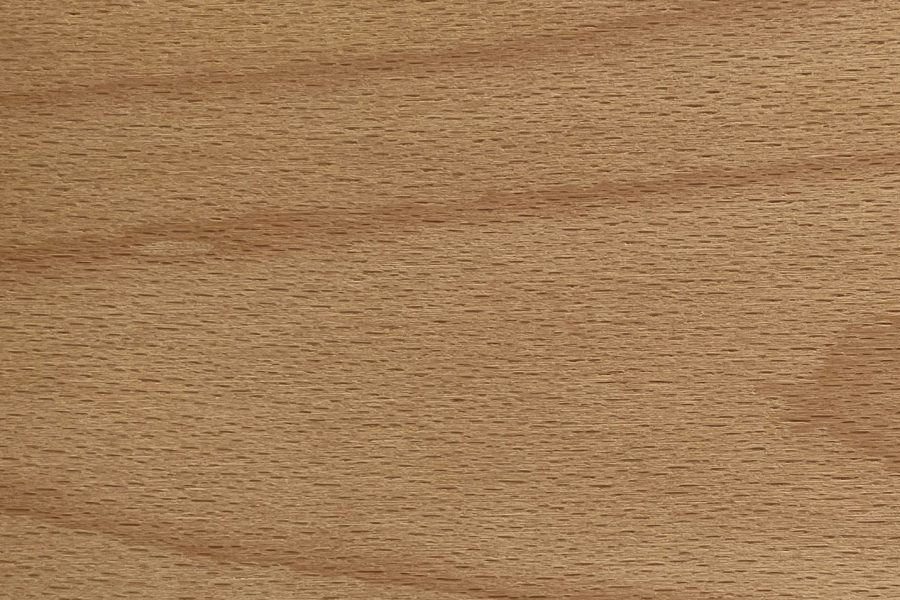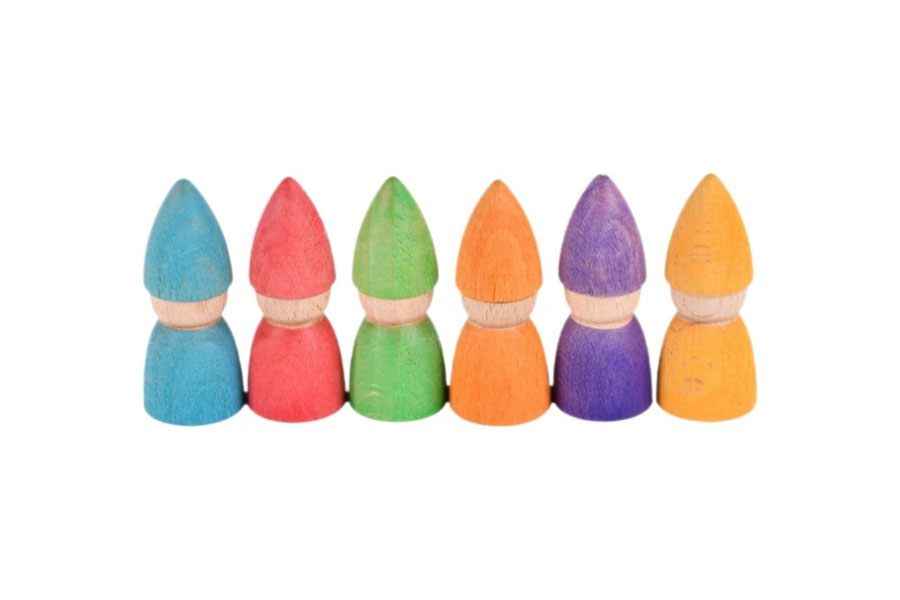How to Choose the Right Peg Doll Blanks and Materials?
You’re excited to start a DIY peg doll project, but the sheer number of options feels overwhelming. You worry that choosing the wrong wood could lead to splinters, or that using unsafe paint could harm your child.
To choose correctly, prioritize three things: solid hardwood blanks like beech or maple, a perfectly smooth pre-sanded finish, and certified non-toxic, water-based paints. These materials are the foundation for a safe and beautiful toy.

In my work as a toy manufacturer, the first conversation with a client is always about materials. An expert buyer like Sophia from Germany won’t just say "make me a toy." She specifies "FSC-certified European beech wood, sanded to a 320-grit finish." She knows that the safety, durability, and beauty of the final product are all decided before a single drop of paint is applied. The blank doll itself is the most important choice you will make. It’s the canvas for your art and the object your child will hold, so let’s get it right.
What types of wood are best for peg dolls?
You see "unfinished wood" on a product listing and assume all woods are created equal. You might buy cheap pine blanks, only to find they dent, splinter, and absorb paint unevenly.
Beech and maple are the best choices for peg dolls. They are durable, dense hardwoods with a fine, smooth grain that resists splintering and is perfect for painting. Birch is a good alternative, too.

As someone who works with wood every day, I can tell you that wood type is not a small detail; it’s everything. Softwoods like pine are cheap, but they are not suitable for high-quality toys that are handled frequently. They dent easily and can splinter, which is a safety risk. We exclusively use hardwoods in my factory for this reason. Beech and maple are the industry standards for premium wooden toys. They are heavy, solid, and incredibly durable. Their fine grain means you get a silky-smooth surface that takes paint beautifully without blotching. When you hold a peg doll made from beech, you can feel the quality in its weight and smoothness. It feels safe and substantial.
Wood Comparison for Peg Dolls
| Wood Type | Pros | Cons | Best For |
|---|---|---|---|
| Beech | Extremely durable, splinter-resistant, smooth grain | Higher cost than pine | Premium, long-lasting toys |
| Maple | Very hard, fine grain, pale color (great for light stains) | Can be more expensive than beech | Artists and high-end toys |
| Birch | Good hardness, smooth surface | Can be less consistent than beech | A solid, mid-range option |
| Pine | Inexpensive, widely available | Dents easily, prone to splintering | Avoid for children’s toys |
Should you buy pre-sanded or raw unfinished peg dolls?
You found a bulk bag of cheap peg dolls, but when they arrive, they feel rough and fuzzy. Suddenly, your fun craft project has turned into hours of tedious sanding work.
Always buy pre-sanded blanks. A perfectly smooth, professionally finished surface is essential for safety and a beautiful paint job. The small extra cost saves you hours of labor and frustration.

In a professional toy factory, sanding is a multi-step process. Raw wood shapes are first tumbled in large machines with abrasive materials to smooth down the major rough spots. Then, they are often hand-inspected and finished to ensure a perfectly silky feel. This process is crucial for two reasons. First, it eliminates any risk of splinters, making the toy safe for little hands. Second, paint applies cleanly and evenly onto a smooth surface. On a rough surface, the paint will bleed into the wood grain and look messy. When a client orders from us, we would never dream of shipping an unsanded product. It’s a fundamental step of quality control. Paying a little extra for a pre-sanded blank is not a luxury; it’s an investment in safety and a much better final product.
Which paints, markers, or stains are safe for kids?
You’re standing in the craft store aisle, ready to bring your peg dolls to life. But the wall of paints is confusing, and you’re worried about grabbing something with unsafe chemicals.
Only use water-based products certified as non-toxic and toy-safe. Look for paints, stains, or markers that explicitly state they conform to safety standards like ASTM D-4236 (in the USA) or EN-71 (in Europe).

This is a non-negotiable for me as a manufacturer. Every single batch of paint we use in our factory must come with a safety certificate from the supplier. These certifications prove that the paint has been tested for heavy metals like lead and cadmium, and other harmful chemicals. For your DIY project, you must have the same high standard. Do not use standard craft acrylics unless they are explicitly labeled as non-toxic and safe for children. Water-based paints are the best choice as they are easy to clean up and have low odor. Water-based stains are also a beautiful option if you want the wood grain to show through, which is very popular in Waldorf-inspired toys. Always read the label carefully; your child’s safety is worth the extra minute of checking.
Are natural oils or sealants necessary for peg dolls?
You’ve just finished painting your peg doll masterpiece. Now you wonder if you need to add a top coat to protect it, but you’re concerned about using yet another chemical.
A sealant is highly recommended to protect the paint from chipping and dirt. Choose a certified toy-safe, water-based varnish or a natural beeswax polish to keep the toy safe and durable.

Think of a sealant as a shield for your artwork. Children’s toys are dropped, chewed, and carried on adventures. A top coat protects your beautiful paint job from chipping and makes the doll easier to wipe clean. Just like with pains, the sealant must be certified toy-safe. A water-based polycrylic or varnish is a great choice for a durable, clear finish. If you prefer an all-natural route, a simple polish made from beeswax and a food-safe oil (like jojoba or coconut oil) is a wonderful alternative. It won’t be as tough as a varnish, but it provides a beautiful, soft sheen and nourishes the wood. For all the toys we ship, a protective finish is standard practice to ensure they can withstand the rigors of play.
Sealant Options for Peg Dolls
| Sealant Type | Pro | Con |
|---|---|---|
| Toy-Safe Varnish | Highly durable, waterproof, clear finish. | Must check for toy-safe certification. |
| Beeswax Polish | 100% natural, food-safe, beautiful soft sheen. | Not waterproof, less durable, needs reapplication. |
How do peg doll sizes and shapes affect play and design?
You see a whole world of peg doll blanks available, from tiny "baby" shapes to tall, angular figures. You’re not sure which size or shape is right for your project or your child.
Size determines safety and the scale of play. For toddlers under three, always use large dolls (over 2.5 inches/6.5 cm) to prevent choking. Varied shapes and sizes inspire different characters and family role-playing.

When we design a new peg doll set for a client, we first ask, "Who is this for?" The answer dictates the size. For the under-3 age group, safety is the only thing that matters. We use a standardized "choke tube tester," and if the doll fits, it’s a fail. Stick to the larger "mom" or "dad" blanks for toddlers. For older children, a variety of sizes and shapes is fantastic. A mix of tall, medium, and small dolls immediately suggests a family, creating a natural starting point for storytelling. The shape also inspires the design. A traditional "straight" body is a blank canvas. A "gnome" or "acorn" shape with a pointed hat lends itself to wizards and fantasy creatures. A shape with etched "wings" is naturally an angel or a fairy. Choosing a variety of shapes gives your child a richer vocabulary for their imaginative worlds.
Conclusion
Choosing the right materials is easy when you know what to look for. Start with smoothly sanded hardwood, use certified non-toxic paints, and add a safe sealant. Your creations will be safe, durable, and ready for play.












